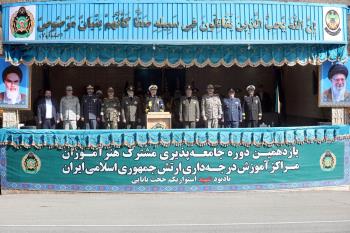Alwaght- When we open the history books, we find them full of accounts of wars between Iran and the Ottoman Empire, a huge empire that stretched from Asia to North Africa and Europe. The “the sick man of Europe”, a label given to the Ottoman Empire by the Europeans, gradually just like other dynasties and empires headed to its decline. It was finally terminated in the First World War. Almost nothing left of the empire that once ruled over lands in three continents. The remainder of the old empire on the world map is a big country that is zealous to restore its former status and become empire of the three continents.
A remainder of the vast Ottoman Empire, the present-day Turkey since spark of the Syrian conflict and afterwards the Iraqi crisis to date has taken a negative role in the region. Before the crisis, the relations between Damascus and Ankara were friendly and the two countries had major cooperation in a variety of military, economic, and cultural fields. But start of war in Syria marked Ankara's turning a back on Damascus.
A slew of evidences have been presented following studies of behavior of Turkey in Syria and the actions it has taken to back the terrorists fighting the Syrian government. For example, the researchers found that the Turkish leaders sought to restore their strong ties with the Israeli regime or they looked for excuse to move to overthrow the Syrian government.
By focusing on behaviors of the Turkish President Recep Tayyip Erdogan and the pathways Ankara followed to deal with the regional developments, we can conclude that Erdogan seeks higher title. Actually he is not uninterested to fish in troubled waters of West Asia and make some benefits, possible benefits that can bring Erdogan close to the Israelis and at the same time open his hand to expand sway of the neo-Ottoman empire, no matter the conditions are appropriate in Syria or in Iraq for his aims.
Concerns over Mosul or excuse for blockading the Kurds?
The very noticeable thing about the recent crises in the West Asia is that officials of some countries like Saudi Arabia and Turkey consider no limits for their remarks. When Erdogan says the Shiites and Kurds should not take part in Mosul recapture operation, perhaps he needs to take a look at the world’s map, and then to Iraq’s, to figure out that Mosul is one of the Iraqi cities.
Why did Turkey deploy some military units to Iraq’s Nineveh province? Are Erdogan and the ruling system of Turkey unaware that this deployment will fan new crisis in the region? Ankara sent military forces to a country with a stable and fixed government. In other words, currently a part of Iraq is occupied by the Turkish military forces which were sent with a sectarian view to Iraq to satisfy Erdogan sense of superiority. The Turkish president in fresh remarks has asserted that the majorly Sunni structure of Mosul must be kept standing. These Erdogan's words lay bare the fact that he sent forces to Iraq’s north not for battling the terrorists of ISIS but for pursuing his aims in Iraq. Even if the intention of the Turkish forces camping in Iraq is fighting the terrorist group, they could not intrude the Iraqi territory without official permission from Baghdad.
What is important, meanwhile, is that Erdogan and the new ruling system he introduced to the country are seeking taking their shares from the war tolls using instrumentally the terrorism crisis in Iraq. In this course, it is not important for them if they fuel sectarian conflict with their remarks and performance or occupy parts of another country’s territory.
The world’s outstanding political analysts brand Erdogan’s behavior and policies as neo-Ottomanism, and argue that the Turkish forces' intrusion into the Iraqi territory comes as part of the neo-Ottomanist ambitions.
The Turkish violation of the Iraqi territory is driven by two goals: first, Ankara seeks bringing Mosul under its area of influence and control as part of implementation of Erdogan’s “mad” policies, or at worst following its recapture by the Iraqi military forces, Turkey launches a chain of military operations to bring the Iraqi city under its control. The second goal is that Mosul is only a pretext and Turkey has no job in Iraq, rather, Ankara wants to open a new passage from northwestern Iraq to Syria in a bid to pave the way for confrontation of the Syrian Kurds and complete the security belt it started in Syria’s Jarabulus.



























